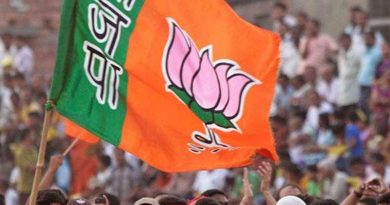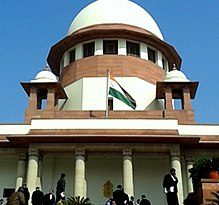| |
|---|
News Desk: Not too many in India would disagree that 2020 has truly been annus horribilis.

For those who have felt the scourge of COVID-19 or know someone who has, it has been a year of disease and death; for those who have lost their jobs or livelihood, it has been a year of deprivation and depression; and for those who have dared to speak out against the excesses of a dictatorial state, it has been a year when they have had to pay a heavy price for their courage.
And yet, for all the tragedy and trauma that the year has brought, it is worth remembering that 2020 has also been bookended by two of the largest non-violent protests that independent India has ever seen. The countrywide, anti-CAA (Citizenship Amendment Act) and NRC (National Register of Citizens) protests at the beginning of the year, and the massive farmer protests at the end of it.
A case can be made that despite everything India has been through this year, her conscience is still very much alive and the ability of her people to see through the lies and subterfuge of the powers-that-be alive and kicking!
I remember having tea in a café at Delhi University’s north campus at the beginning of 2020 with a friend who is a professor of history there. It was a cold and rainy morning and as a massive procession of protesting students braving the elements marched past us, I asked my professor friend what he felt the future held.
He paused for a long minute and said, “Dark days are ahead, but you cannot stop the rain.”
I asked him what he meant and he explained that while there are many who subscribe to majoritarianism and hate, there are also many who cherish essentially human values of solidarity, peace and equality enshrined in our constitution. The latter he compared to the plentiful drops of a rain shower.
“You can go outside and hold up your palms to the sky and try to stop the rain from falling all you want. At the most you will be able to stop a few drops. The rest of it will fall, seep into the ground, raise the water table, and nourish the earth. They can no more stop the people of India than they can stop the rain. They may halt this movement but a bigger one will emerge before long.”
The history professor’s words turned out to be prophetic. Even though that brief, shining moment of national democratic protest was cut short by the onslaught of Coronavirus and the lockdown that followed, a mere 10 months later, a bigger movement has emerged, this time led by lakhs of farmers on the borders of Delhi, which, despite the state’s best efforts, is showing no signs of abating.
Those who found hope in the peaceful and non-violent protests against the CAA and NRC and then lost it in the darkness of the months that followed can take hope again in the presence of the protesting farmers on the borders of Delhi.
I know I certainly have.
Ghazipur border
My first encounter with the protesting farmers took place at Delhi’s Ghazipur border about a week after they began to congregate there. The police had blocked motorable access to the site, but my taxi driver, a resourceful fellow and the son of a farmer himself, managed to get me close enough to it.
As I got out of the taxi and started walking towards the gathering of farmers on the elevated section of the Delhi-Meerut highway about a kilometer away, I suddenly began wondering if I was doing the right thing. The evening haze was starting to set in and the smell of a large open drain beneath the flyover wafted up. Off in the distance to the left of the highway, birds of prey hovered over a huge landfill. I suddenly wanted to turn around and go back to the comfort of my own home. I am glad I didn’t.
As I neared the parked makeshift tractor homes (or ‘trolleys’ as they are called), I saw a group of Sikhs sitting on mattresses on the flyover pavement. One of them got up, came over to me and said, “Chai piyoge?” This sudden unexpected bit of warm hospitality on a cold and dreary evening caught me by surprise. I accepted the offer, sat down with them on the mattress and we began chatting.
I found out that they were farmers from Shajahanpur and had reached the outskirts of Delhi on November 26. Prevented from entering the city of Delhi, they had pitched camp on the open highway itself.
I asked them what they thought was going to happen next. One of them, Baba Manjit Singh, a Gurudwara priest, said, “We don’t know. All we know is that we will sit here till the government responds to our demands. We will not respond with violence. We will sit here peacefully, no matter how many blows we may have to take, but we will not go back.”
Saying this, he closed his eyes and went into meditative silence. I stared at the Baba’s face for a long time. It was peaceful.
Khalistanis? Terrorists? Urban Naxals? These?
A few hundred feet away, hundreds of farmers sat on durries in the middle of the road on the blocked, Delhi-bound side of the Delhi-Meerut highway, listening quietly to an elderly farmer talk about democracy and the three new farm laws. On the other side of the highway, traffic flowed freely.
I walked around the makeshift tractor-trailers camped along the side of the road, and asked several farmers there the same question, “Do you think the government will listen to you?”
Their response was unanimous, “They will have to. We will not move till they do.”
One of them, Kuldeep Singh, asked me, “Tell me, what was the need for the prime minister to build a new parliament? Is the roof of the old one falling on the heads of the MPs and MLAs? Also, why does he have to spend Rs 8,000 crore on new private planes? Why doesn’t he use that money to help the farmers instead?”
Another farmer, Sukhjinder Bajwa, asked if I was with the godi media. I told him I most certainly was not. He then went on to elaborate on how that the godi media literally lies for a living and has been singularly responsible for wrecking the social fabric of the nation, and creating much trouble between Hindus and Muslims. In the 50 plus years that he has been alive, he said, there has been no communal tension in his village. So why is it becoming an issue now?
Mr. Bajwa continued, “The media is asking where our funding is coming from. You are asking Sikhs this question? Sikhs who fed lakhs of hungry people during the lockdown?”
At that point, another farmer interrupted him, “We could ask Modi ji where his funding is coming from. All those crores he spends on his rallies, where do they come from?”
Everyone standing around him burst into laughter. I was impressed by the farmers’ calm-headed grasp of the details of current Indian realities – something I haven’t seen much of in most people I work and interact with. I thanked them all for their time, and as I took my leave, one of them said, “See you tomorrow?”
Heading back home, I cancelled my appointments for the next day, stopped at a local supermarket in my neighbourhood, and bought all the biscuit and juice packets they had in stock. One of the store attendants looked at me slightly bewildered. I explained to him that these were for our kisaan brothers sitting on protest.
To my surprise, he folded his hands and said “Thank you!” and carried my shopping to the cash counter. The cashier, too, upon finding out what these were for, folded his hands and said, “I too am from a farmer family. Let me give you a good discount.”
As he did, I realised that the protesting farmers might just have touched a deeper chord amongst the masses than the government would care to admit.
The next morning, my taxi driver and I headed back to Ghazipur with 200 juice packets and 200 biscuit packs. A couple of farmers helped us give them out to the gathering of people on the durrie in the middle of the highway. We then spotted our new friends from the previous evening who greeted us joyfully and invited us to their langar. After a simple but tasty meal of rice, chana, and chai, I asked them if there was anything we could get them.
An elderly Sikh gentleman responded, “We need your love and support, that’s all. We just need to know you are with us.”
We assured them that we were.
That night, the temperature dropped drastically. As I shivered a bit under my blanket, I wondered how Baba Manjeet Singh and his friends were surviving the night under the open sky.
Early the following morning, I got a call from a friend who said that she had read my Facebook update about my trip to Ghazipur and felt inspired to buy several pairs of warm socks and caps for the farmers. She asked if I be able to take them across. And so that afternoon, I found myself in Ghazipur yet again.
But when I offered my new friends woollen clothes that my friend had bought, they politely declined, telling me they personally had enough and told me to please distribute them to the poorest farmers there. Touched by their unselfish simplicity, we did.
Suffice it to say that everything I have seen in my interactions with the farmers at Ghazipur over three days has been at complete variance with what the godi media, so-called, has been saying about them.
Singhu border
The hike to Singhu is a long one. Located on GT Karnal road, this border is blocked by not one but three barricades of concrete blocks, concertina wire and the ever-present rapid action force (RAF). One has to walk about a kilometer to get to where the farmers’ camp begins (although, if you have food or clothing for the protestors, the police will let your car go all the way till the edge of the protesting farmers’ camp).
On my first visit to Singhu, I stop an elderly farmer, Taranpreet Singh, just before the last barricade and asked him my stock question: “Will the government accept your demands?” Once again, the answer was in the affirmative.
As we chatted, the gentleman made a thought-provoking observation: “Unlike the rest of the country where rape and molestation are becoming commonplace, women of all ages here feel safe. Ask them. You can see young women reporters here walking around without feeling threatened.”
As I walked through the crowds behind the barricade, I saw that that assertion was, in fact, quite accurate. There were a number of women present, many of them from the media fraternity, and none of them were being ogled at or harassed.
I visited a langar where sooji halwa and tea were being served. I asked the gentleman serving if they needed anything for the langar. He thought for a second and said, “Rusks to serve with tea would be nice.”
I called a friend who happens to be a stand-up comedian and requested her to please arrange for some. She agreed without a moment’s hesitation. The next day she and I drove right till the edge of the camp with a car trunk full of rusks. As she handed over the rusks to the langar, my friend found herself overcome with emotion.
Malkeet Singh, the elderly Sikh gentleman running the langar asked her what the matter was. My friend, barely able to speak, finally told him that she was overwhelmed that the annadaataas of the nation were continuing to be the annadaataas even in that difficult situation.
Malkeet Singh asked her to have a seat and told her: “Listen, we don’t know what will happen next. We are simply doing what we can and trusting God for the rest. You also do the same.”
There was a calming simplicity in his words. I felt comforted by them too.
A couple of days later, I visited Singhu again and met Malkeet Singh ji. He offered me a cup of tea and introduced me to two young men helping serve out the langar, Vikram and Nikunj, who had come all the way from Ahmedabad, Gujarat, to do seva here. I asked Vikram if his family was worried about him.
“Not at all,” he replied. “In fact, they are proud of me for coming here and supporting the farmers.”
I asked him where he and his friend stayed at night.
“Right here”, he pointed to the ground. “Once we have finished cleaning up after the last langar of the day, we put out the mattresses and go to sleep.”
I asked him if he found his work exhausting. He broke into a broad smile and said, “There is no tiredness. Seeing everyone’s spirit and determination here gives us the strength we need.”
I made my way through the huge crowds at Singhu and spotted a young Sikh holding up a sign saying, “I am a farmer and I speak English.”
I asked the young man what that was about. He said, “Some media channels are reporting that because we speak English, we couldn’t possibly be farmers. I am here to tell them that I speak English and I am a farmer.”
Standing next to him was another young man from Ludhiana who told me that as much as he would like to stay here with the others, he can’t, as he has responsibilities back home. Nonetheless, he made it a point to visit Singhu every week just to show his solidarity with those camped here.
“We are not beggars,” he told me (in English). “We are not asking for cash handouts. We only want what is rightfully ours. We just want that these black bills be taken back so that our kids and future generations can survive easily. This is not a democratic country right now, this is like a dictatorship.”
The foot massagers and the pizza ovens may have grabbed the media spotlight, but it is important to remember that at the heart of this story is the desperation which has brought lakhs of farmers to the borders of Delhi to protest against laws they justifiably feel are heartless and unjust. Also at the heart of this story is their decency and courage.
One can only hope that the Modi government, despite its own obduracy, will acknowledge this, look beyond its own self-interest, and course-correct.



